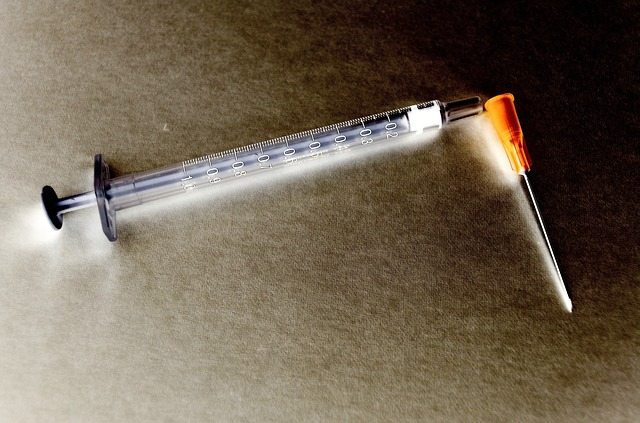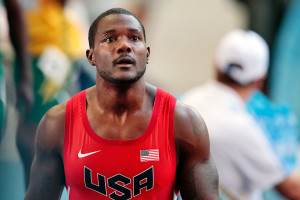Ready, set, stop: drugs disgrace Gatlin does not deserve bumper sponsorship deal
For those uninitiated in the world of athletics, you might have recently noticed a story reporting that Justin Gatlin, an American sprinter, was given a sponsorship deal by Nike and perhaps skimmed over or skipped it. After all, sponsorship deals are hardly the most exciting features of sport. But they are the most lucrative, and thus deserve particular attention, especially when an athlete with Gatlin’s history crops up.
Gatlin’s second ban for doping offences in 2006, barring him from competition for four years, was hoped by many, including myself, to be career ending. Performance enhancing drugs cannot be tolerated in sport, amateur or professional. It is permissible that a first-time offender simply made a mistake or was misled by a coach. Or like all athletes, they might have become infuriated with their apparent lack of returns on the hours of pain and sweat and fallen prey to temptation. It happens, we punish and hopefully they can reform. A second offence shows not ignorance or stupidity, but a blatant disregard for fair play and demonstrates clearly that this is an athlete who will take a tainted victory over a hard fought loss. Only in extreme mitigating circumstances should a second time offender be granted a third chance in a sport currently enduring an epidemic of doping; three strikes and banned for life without question. In my opinion, Gatlin didn’t warrant a third chance and should have been banned for life in 2006.
A second offence shows not ignorance or stupidity, but a blatant disregard for fair play and demonstrates clearly that this is an athlete who will take a tainted victory over a hard fought loss.
The reinstitution of a minimum four year ban for doping offenses by the IAAF in 2015, who had cut the ban to two years in 1997 had been long overdue. An athlete should now be guaranteed to miss one Olympic Games, and hopefully two World Championships for doping, a severe and hopefully deterring punishment. But Gatlin’s offences sadly took place between 1997 and 2015. He was first banned in 2001 for two years after taking amphetamines- this was reduced on appeal. His second ban in 2006 was inexplicably for four years, despite Gatlin agreeing to an eight year ban. While appearing a decent gesture on his part, Gatlin in fact planned to switch to the NFL while banned, and in fact still attempted to be drafted during his reduced suspension. Fortunately no team signed him, hopefully because they, like me, believe that a drugs cheat banned from one sport shouldn’t be allowed to mock that punishment by taking up another professionally during their suspension. The shortness of this ban for a second offence is worrying still in that Gatlin won gold in the 100m at Athens in 2004, and in the 100m and 200m in Helsinki in 2005, less than a year before his deception was uncovered. It is not inconceivable that he won those events while doping.
However, his bans were not career ending, and since his return in 2010 he has established himself as one of the best sprinters in the world, despite being 33 now. He won bronze in London, and is tipped by some to be the man to dethrone Usain Bolt at this summer’s World Championships in Beijing. His times have been astounding, recording six out of the seven fastest times of 2014 (although Bolt hardly competed last year), the best being a staggering 9.77, a personal best for the then 32 year old.
However, his bans were not career ending, and since his return in 2010 he has established himself as one of the best sprinters in the world, despite being 33 now. He won bronze in London, and is tipped by some to be the man to dethrone Usain Bolt at this summer’s World Championships in Beijing
This raises two conundrums. First, these are unprecedented times for someone of his age. Linford Christie won gold in the 100m in 1992 at the age of 32. The oldest 100m gold medallist in Olympic history; he was aided by the absence of the some key figures that day, but still a remarkable achievement. He ran only 9.96, significantly slower. Gatlin’s remarkable times raise questions regarding his legitimacy this time around. He has proven himself to be a habitual cheat, and it is not implausible that he is back to his old tricks. Secondly, recent research has shed some light on the long term effects of performance enhancing drugs which suggests that doping cheats can benefit for years after the event. Even if Gatlin is in fact clean, his success might be directly attributable to his repeated use of banned substances years ago.
This should raise considerable alarm bells about promoting and supporting such an athlete. For Nike, it seems cheaters are fair game so long as they might turn a profit. Despite ending their involvement with Gatlin after his second offence in 2006, Nike have decided to re-endorse and sponsor the sprinter, in what is being reported as a highly lucrative deal. That Gatlin cheated, repeatedly, remains unrepentant and is yet to apologise or admit his mistakes, and still is rewarded is sickening. His nomination for the IAAF Athlete of the Year award last year left a sour taste in many athletes’ mouths. Even if he failed to make the final short-list; this endorsement of cheating by Nike does likewise.
Nike has placed Gatlin on a pedestal, as an example to aspiring athletes. The example they are endorsing is that cheating only matters if you get caught, and that should you get caught repeatedly, it doesn’t really matter
Nike has placed Gatlin on a pedestal, as an example to aspiring athletes. The example they are endorsing is that cheating only matters if you get caught, and that should you get caught repeatedly, it doesn’t really matter. Hence, so long as Gatlin is sponsored by Nike I won’t be buying their products; if you see me wearing Nike kit, I already own some, it’s expensive, and I’m not just going to burn it on my lawn! I encourage you to do likewise if you care about the integrity of sport.


Comments